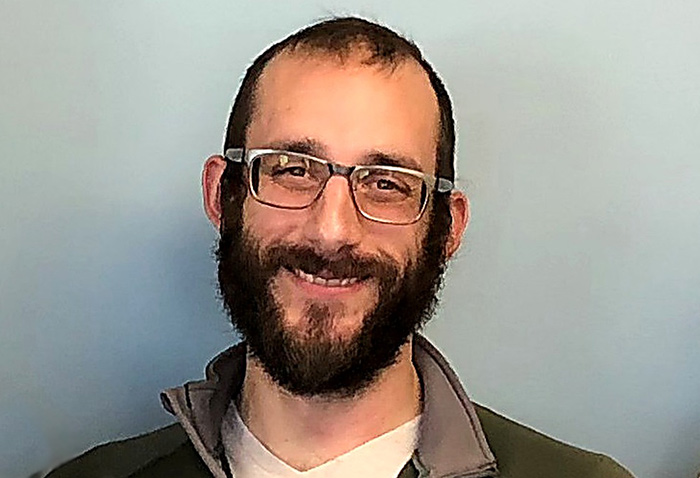Readers comments 6-2-17
Pomona’s lack of compliance
Dear Editor:
I am responding to Pomona College’s spokesperson Mark Kendall’s statement quoted in the COURIER article about my lawsuit last week. He misrepresented my position and has clearly not read my petition.
The mitigation measures are not being followed regarding the movement of Renwick House. There are photographs that include heavy equipment adjacent to trees, absent tree protective fencing, and actual damage done to a part of Renwick House. There is no denying these photographs.
I have never objected to the museum at this location. And I have never fought moving Renwick House from its current location. While I was on the planning commission, Pomona College presented a museum project that was compatible with the Claremont General Plan, the Village Design Plan and the Pomona College Master Plan. I was a strong proponent of the original proposal.
Then a more fully developed architectural design was presented so quickly that one cannot escape the idea that it was already fully designed. The new design was not compatible with the controlling documents.
Mr. Kendall states that Pomona College, over a several year period, conducted outreach to the community over this project. I have been a recipient of this “outreach.”
I also met with senior Pomona College staff: we looked at the design drawings and walked around the Pomona campus while discussing the project. When I pointed out that the scale and massing of the building was too large, I was told that it was necessary to meet Pomona College’s programming needs.
I pointed out that most major design elements in the Pomona College Museum of Art were reflective of buildings that Pomona College itself condemned as inappropriate, and planned to demolish. I was told that the college “liked the design.” This is not public outreach. It is stonewalling.
The design concepts form the context of this lawsuit. But the basis of the lawsuit is the lack of compliance with the mitigation measures, and the inappropriate use of Pomona College representatives in creating the Claremont city staff response. This deprives, not only the six appellants, but also the city council and Claremonters in general, of the right to a fair hearing.
The city council members were presented with a document that limited their ability to fully understand their choices and duties and deprived them of unbiased information. In filing this lawsuit, we are not only protecting our rights, but the rights of the city council and of Claremonters in general.
Martin McLeod
Claremont
Pomona College lawsuit
Dear Editor:
Normally I think that people initiate way too many lawsuits, but I find myself in support of the one started by Claremonters for Honest Governance in regard to the recent appeals of the approval of the new Pomona College Museum of Art.
The city and Pomona College both maintain that they provided lots of opportunity for citizen input and seem hurt that there should still be any opposition. Well, as someone who attended pretty much every meeting and spoke at them as well as wrote quite a few letters, I’d like to let both bodies know that allowing people to speak is not the same as hearing what they have to say. It was clear by their actions that neither the city nor the college actually listened carefully to the original concerns, the appeals or gave serious consideration to the suggestions that were presented.
The city pretty much allowed Pomona College to do what it wanted, making no serious requirement to consider the many alternative locations for the museum, discounting the Village Design Plan, allowing Renwick House to be moved into isolation across the street and not even requiring that its original setbacks be maintained.
All you need do to see the special treatment Pomona got is to look at the plans the college started with and the ones that were approved—the modifications are hardly noticeable.
Pomona pretty much refused to negotiate anything and the city made only token objections. Pomona will have the large teaching and storage facility it wanted. But this comes without their having to provide any greater community benefit than the current museum does and at the cost of damage to the character of College Avenue. How is this any benefit for the city as a whole?
The Colleges are important parts of the city, but they are only part of it. The city government—staff, commissions, and council—should not give their desires greater weight than those of other citizens and allow them to override the visions and goals in our General Plan.
Working with the Colleges is good; allowing them to rule decisions about the future of our city is not. Any attempt to do so should not be made easy.
Sue Schenk
Claremont
Chamber holiday greeting
Dear Editor:
We were residents of Claremont for 10 years, and enjoyed the traditional and non-traditional observances of holidays and seasonal activities of the city. Today I searched for possible activities connected with Memorial Day on the Claremont Chamber of Commerce website.
Imagine my shock and dismay when I saw a bright red, white and blue sign urging readers: “Happy Memorial Day! The Claremont Chamber office will be closed, Monday, May 29 in observance of the Memorial Day Holiday.”
Really???
Lynn Paulson
Boise, Idaho
The kindness of strangers
Dear Editor:
On Sunday, Mothers Day, I set out walking to the Farmers’ Market and the bank by way of Sixth Street in Claremont.
I walked through the Pomona College campus and lingered awhile, as the festive commencement ceremonies were about to begin. The trumpets were sounding and the excitement was spilling out as the sea of black robes and mortarboards were just starting their procession.
After a few minutes I continued on my way only to discover when I arrived, my bank card was no longer in my pocket. I hurriedly retraced my steps, searching all the way. Arriving home I called the bank and they canceled my card, saying I would receive a replacement in a week.
I set out on my Sunday morning walk again, succeeding in reaching the Farmers’ Market before it closed at 1 p.m. My two round-trips totaled five miles!
The following Thursday, I received a call from the Upland Police Department inquiring if I had lost my bank card. Someone named Serino had turned it in. I was delighted and a little surprised, but asked for the name and number of the person who had returned it so I could call and express my appreciation, and offer a reward.
But Serino would not hear of it! In broken English, he explained that he was here from the Philippines visiting his son. He and his wife walked to mass and on the way home they found my card. They turned around and went back to the Bank of America in Claremont only to find it closed.
On Monday, they walked to Montclair Plaza thinking maybe they could turn it into the police there, but were told they should return it to the Claremont Police Department since it was found in Claremont. They went to the bus terminal to get a ride to the Claremont PD but since my address is in Upland, Claremont police sent it there on Wednesday, thus my call on Thursday.
I want to thank the three police departments involved in this, and publicly thank Serino. My faith is renewed through the humanity shown in his efforts to return a bank card to its rightful owner. I guess I should not be surprised, as I want to believe most people would have done the same.
I just hope if I was in a different country and found someone’s bank card, I would put out this much effort to return it to its rightful owner.
Marsha Wolfersberger
Upland
Citizen’s Climate Lobby
Dear Editor:
In response to the letter from Michael Hertel on May 19, I would like to explain a little about Citizen’s Climate Lobby (CCL).
CCL is a grassroots movement that is lobbying for a specific solution to climate change. The CCL idea is to place a fee on carbon emissions at their source, and return all the money to every American household.
I belong to a local chapter of CCL (Inland Valley Chapter). I joined because I have been very worried about climate change. The thing that makes me excited and hopeful about CCL is that we have a practical and doable solution that, if implemented, would help us move away from fossil fuels and toward clean energy.
When you think about it, this really requires a herculean effort. It’s like trying to make a U-turn on the Titanic. We have known for decades that carbon emissions are changing the climate in dangerous ways, but let’s be honest, we have not had the political will in the United States to fully commit to reducing carbon emissions.
Mr. Hertel stated that our city council’s “action on the resolution was a bit naïve.” What is naïve is continuing to wait for our federal government to take constructive action to safeguard the health of the people and the planet.
Mr. Hertel said, “Dealing with climate change is a job for the federal government and the international community.” After eight years of gridlock under the Obama administration, and now an abrupt and dangerous departure from established environmental policies under the Trump administration (Trump’s newly proposed budget would cut 30 percent from EPA funding), we cannot continue to wait indefinitely for congress or the president to do what is right and logical, based on a clear scientific consensus. Waiting for someone else to fix this serious problem is simply wasting valuable time.
Therefore, CCL is lobbying our representatives, spreading the word about our proposed solution and engaging state and local governments to get on board with a solution that is already up and running in other countries, and showing very positive results. We cannot afford to wait.
As a member of CCL, I sincerely hope that getting people on board, as well as state and local governments, will help us reach a tipping point, making it a no-brainer to reduce carbon emissions as quickly as possible!
Chris Williams
Claremontl








0 Comments